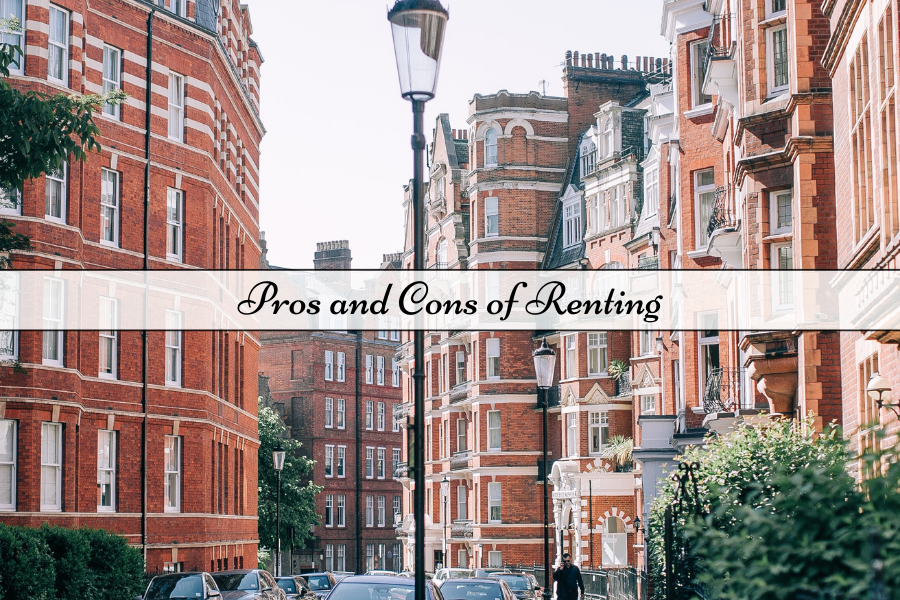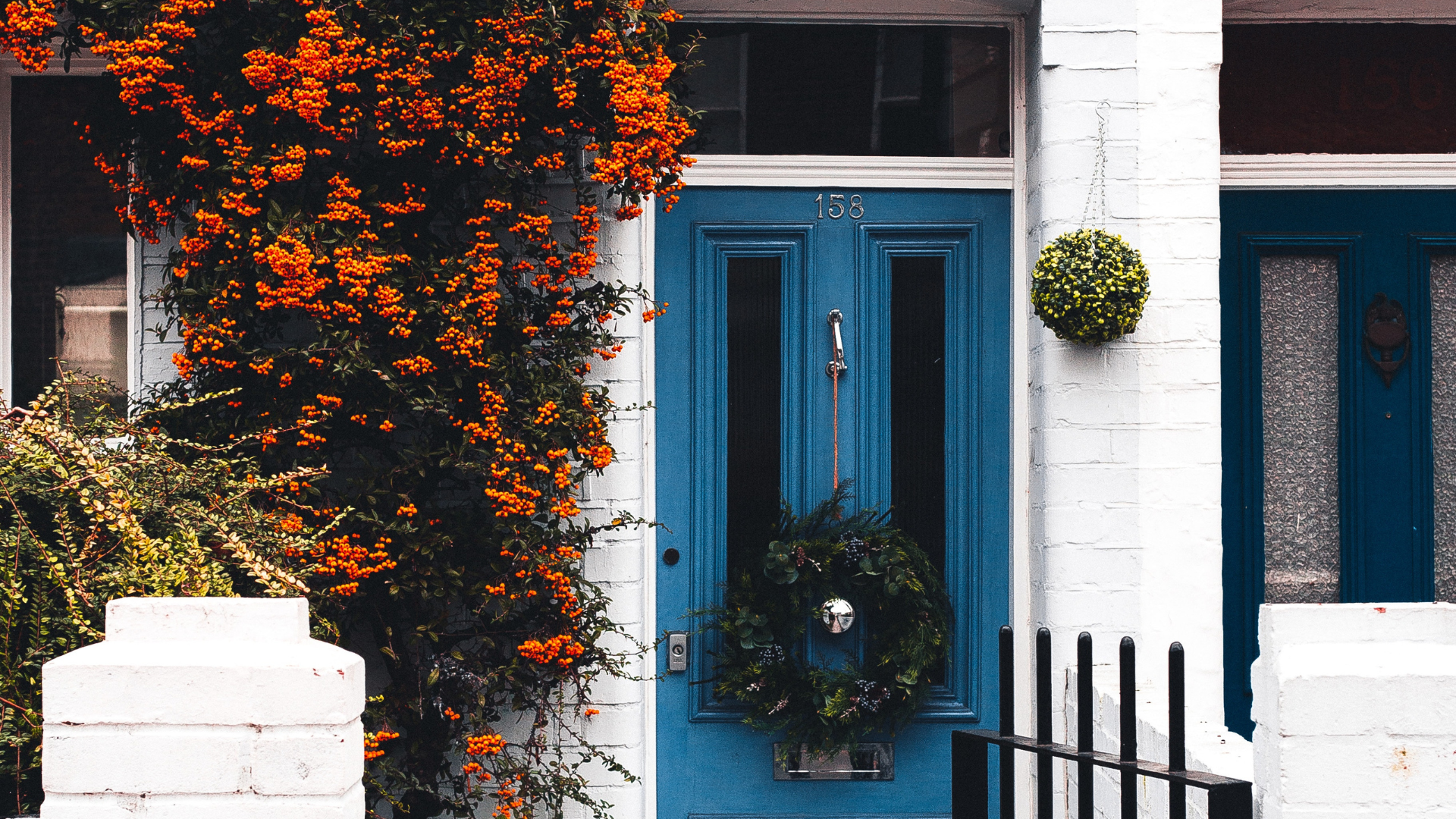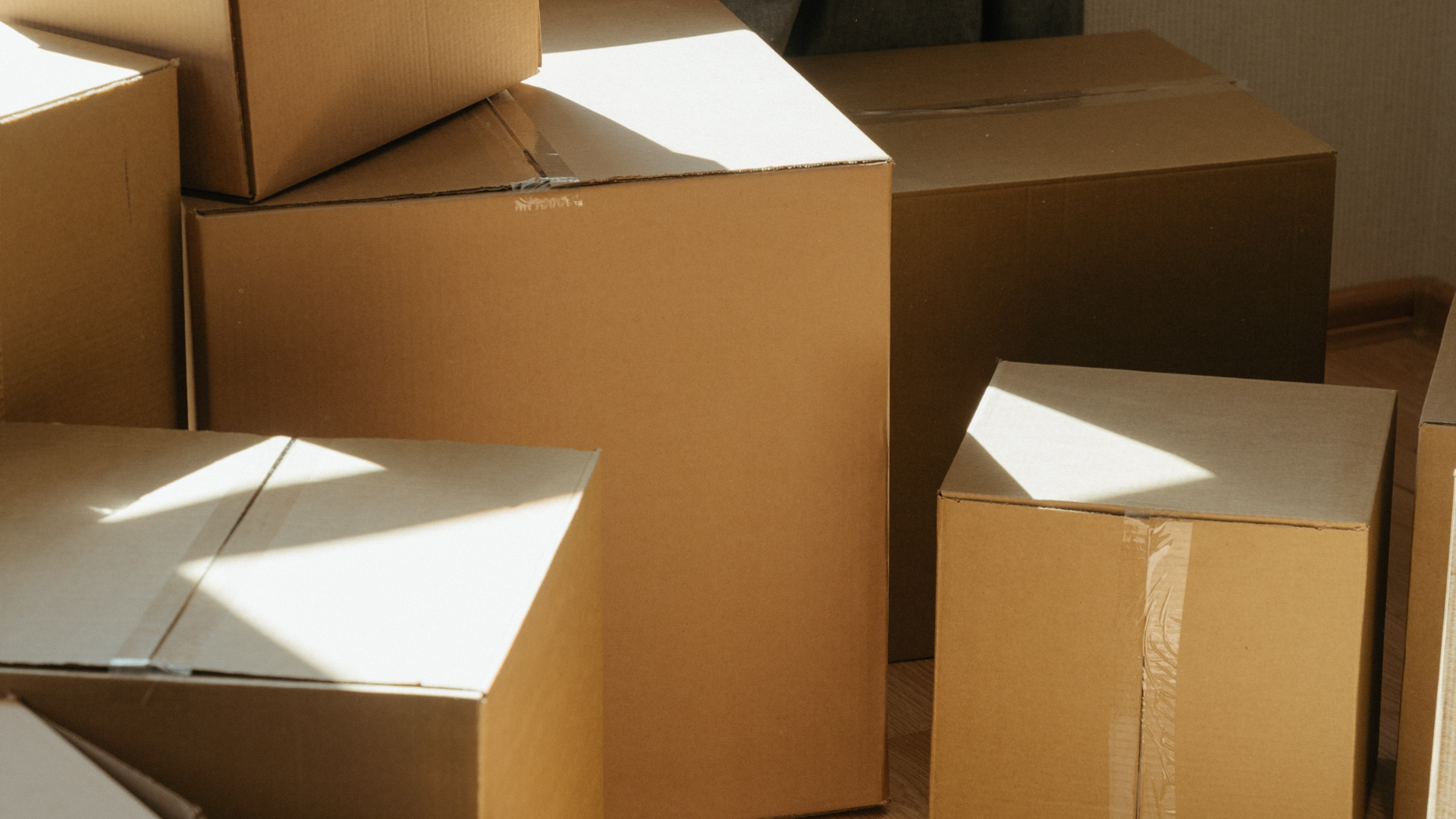Thinking of renting an apartment or house but can’t decide? Here are the pros and cons of renting to help you make up your mind.

As with most things in life, there are some advantages and disadvantages of every decision you make, including renting. Should you rent or buy? Is renting worth it? Will you enjoy renting or will it stress you out?
We'll cover 7 pros and 6 cons of renting that you should be aware of before finalising your decision.
This post is all about the pros and cons of renting.
Pros of Renting
1.) Increased Flexibility
Renting gives you a lot more flexibility to move around compared to owning your own home. If you want to move, you’re free to go once your tenancy agreement ends. This could be as short as 6-months or as long as 2 years+, depending on what you agree with the landlord.
However, if you own your home, you will have to go through the process of selling first, which can be a long and drawn out process. If your property doesn’t sell for a while, you could be stuck there for longer than you hoped.
Renting is ideal for anyone who is unsure where they want to live and see themselves moving around to try out a few different areas. Alternatively, you may be going travelling and only need somewhere to stay for a short period of time.
2.) Convenience
Renting can be very convenient if you don’t want all the hassle associated with buying a house. For example, you can choose to rent a fully furnished apartment, so you don’t have to worry about purchasing any items.
If something goes wrong with the structure of the property, you won’t be responsible for having to pay and fix it. This will be the landlord’s responsibility.
You can even find rental places (i.e serviced properties) where the majority of things are taken care of for you and included within your monthly bill, such as cleaning, utilities, gym facilities etc. All you then need to worry about is making a lump sum payment each month and that’s it!
3.) Accessibility

Renting can give you access to living in certain locations that you may not otherwise be able to afford. For example, buying a house in London is crazy expensive ! However, many choose to rent, which enables them to be nearer work or closer to family. You get a taste of the London life without having to fork out a fortune.
4.) Meeting New People
If you’re renting, you may choose to live with other people, some of whom you’ve never met before (i.e finding somebody on SpareRoom). This can be a great way to meet new people and get to know someone you otherwise would have never met. Another bonus is reduced rental costs from sharing.
Whilst this can also backfire and you could get stuck with people you absolutely hate, the goods news is you won’t be stuck with them forever! Yes, it might be uncomfortable, but you could move out in a few months if it gets that bad.
If you are moving in with people you don’t know, you should always try and meet them a few times first to see what they’re like.
5.) Predictable monthly expenses
Your monthly outgoings are usually very predictable when renting. You will simply have to pay your rent and monthly utilities. These include:
- Gas
- Electric
- Water
- Landline
- Internet access
- TV license
- Council tax
- Renters insurance which will protect your belongings and cover you against accidental damage
However, there are lots of hidden costs when buying a home. If a pipe bursts or the boiler breaks, you will have to fix it and you might find unexpected expenses keep popping up. You may end up having to budget a lot more when buying a home than with renting.
6.) You can ignore the small stuff
There may be something in the flat or house that you’re renting which is not ideal, such as a really ugly fence or squeaky floorboard. However, if you can live with it, you can take the attitude of not my problem given you’ll be gone in a few months. You don’t have to sweat the small stuff.
7.) No big upfront cost or mortgage
When you’re buying a house, you’ll have to pay a large upfront cost in order to get a mortgage. Luckily, you won’t have to worry about this when renting.
You’ll usually just have to pay a deposit (usually 6 weeks of the total rent) upfront. The good news is you’ll also get your deposit back once the tenancy ends (assuming there is no damage to the property).
You also won’t have a huge mortgage hanging over your head. This can place a massive strain on finances and if mortgage rates go up (as they have done recently), it can become extremely difficult.
Cons of Renting

So whilst there are definitely some pros of renting, there are also some cons….
1.) It's Not Your Own Home
Whilst you’ll have a place to live when renting, it won’t technically be your own home. That doesn’t mean you can’t make it nice and homely, but it just might not feel the same as having a place that is truly yours.
2.) Restrictions
There may also be certain restrictions that you won’t be able to do when renting. For example, if you hate the colour of the wallpaper, you won’t be able to just paint it the colour you want. You’ll be stuck with the house as it is (so no refurbishing or extensive DIY).
Depending on what you agree in the contract with your landlord, you may not be allowed to do certain things, such as having pets, smoking or having guests stay for a prolonged period of time.
3.) Difficult Landlord
If there is an issue with the flat you’re renting, such as the boiler breaking or flooding, it is your landlord’s responsibility to fix it. However, you can sometimes end up with nightmare landlords. They might become very unresponsive or take ages to fix things.
You can minimise the risk of this happening by speaking to previous tenants if you can or asking the estate agent if there have been any complaints about the landlord.
4.) Difficult Flatmates
You could be the best of friends but then you start living together and you might find it doesn’t go quite as planned…
This can put you in a tricky situation and it can be very stressful to hate where you live. You also won’t be able to get rid of them because it’s not your house to kick them out of ! You’ll have to either wait for your 6-month break clause to move out, or if it’s that bad, find somewhere else to go last minute.
5.) Uncertainty

The worst part about renting is when the end of your tenancy is fast-approaching. This means you will either have to 1.) negotiate with the landlord to try and stay in the property another year or 2.) Move out and find somewhere else
What can make it worse is all the uncertainty about which one it’s going to be ! It can be very unsettling.
1.) Negotiating with the landlord
You will usually receive an email from the estate agent a couple months before your tenancy ends letting you know the landlord’s intentions (i.e. if he wants you to move out or if he’s happy to keep you on).
If you want to stay on for another year, the landlord might try and increase your rent, especially if rental prices of similar properties are going up. However, if you’ve been a good tenant, you might get lucky and the landlord keeps the price the same.
But sometimes they can be unreasonable, increasing the price by 30%-50%+. You can (and should) definitely negotiate to try and bring down the price. This will sometimes work, but you will unfortunately always be at the mercy of the landlord.
If they are not willing to budge on price, you will either have to pay it or sadly move out if you can’t afford it.
2.) Moving out and finding somewhere else
If you have to leave at the end of your tenancy, you will have the hassle of trying to find a new property and moving out. This can be a massive upheaval and is another aspect of renting that is not fun.
You can minimise the stress of this by looking for new properties early and getting prepared, but this still doesn’t change the fact that you’ll have to move.
There may also be other factors out of your control which mean you’ll have to move. For example, you could be an amazing tenant and have lived in the property for years, but suddenly your landlord wants to sell. Unless you want to buy it, you’ll have no choice but to pack up and go once your tenancy ends.
6.) Not Investing Your Money In Property

This can count as both one of the pros and cons of renting. When you buy a home, it’s technically an investment.
Over the long-run, your property will eventually go up in value and you can hopefully sell it for more than you bought it for (making a nice bit of money). You won’t be able to do this with renting.
Whilst you may think renting is a ‘waste of money’, it really depends what you do with any leftover cash you have. For example, if your rent is relatively low and you choose to invest your savings into stocks and shares or an index fund, you might find this turns out to be an even better investment than buying a house.
So it can work out in your favour. It just means you might have to be a bit more financially savvy when renting.
And that's it ! Let's wrap up the pros and cons of renting...
Key Takeaways:
The pros of renting are:
- Increased flexibility
- Convenience
- Accessibility
- Meeting new people
- Predictable monthly expenses
- You can ignore the small stuff
- No big upfront cost or mortgage
The cons of renting are:
- Not technically in your own home
- Restrictions
- Difficult landlord
- Difficult tenants
- Uncertainty
- Not investing your money in property
This post was all about the pros and cons of renting.
If you found this helpful, you can view our upcoming content on our coming soon page to see what's next !

Comments